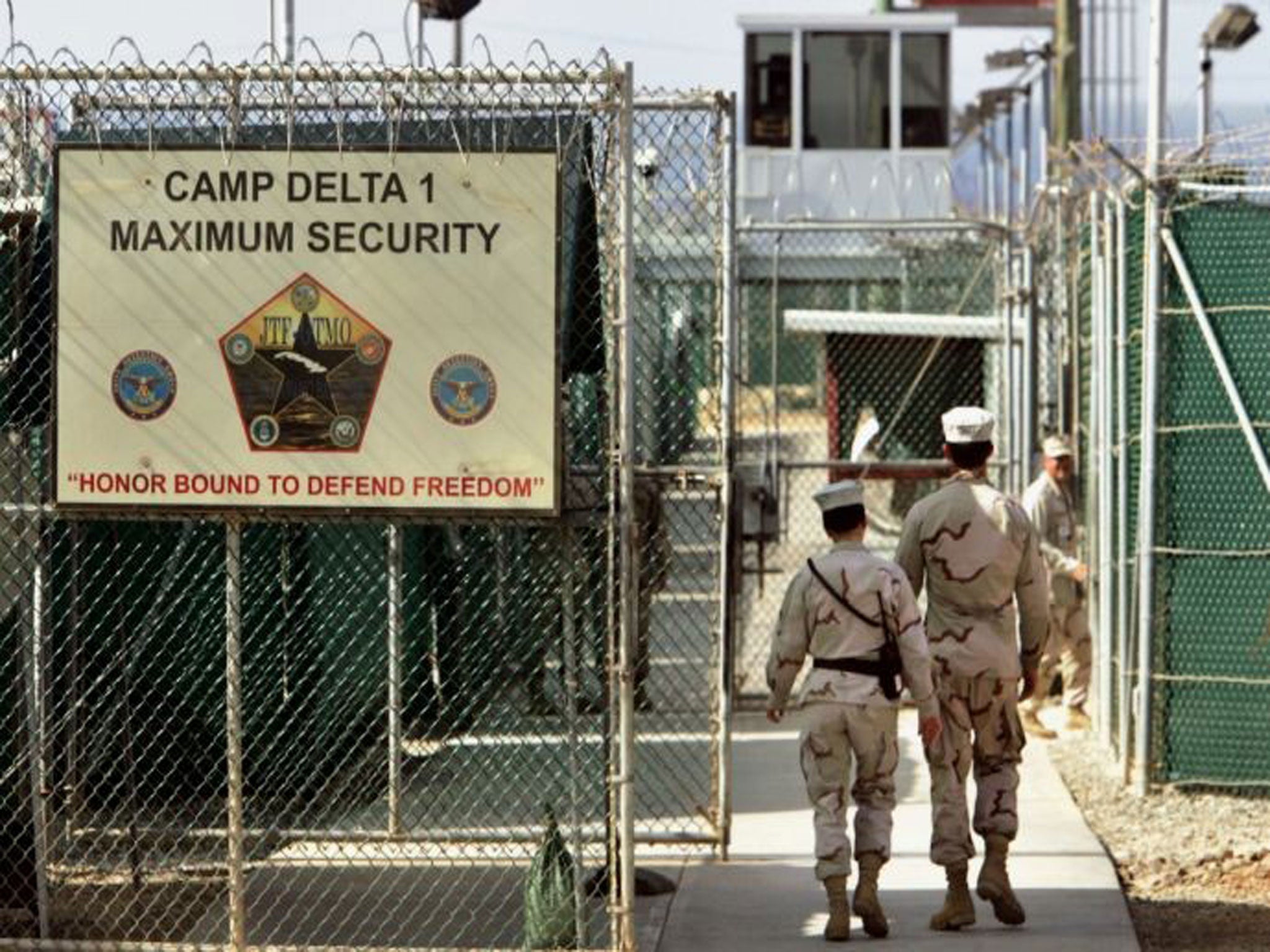US announces plans to transfer two prisoners from Guantanamo Bay as Obama slowly moves towards closing the detention facility
Two prisoners will be transferred out of the controversial prison to Algeria if plans go ahead

The US has begun the transfer of two Guantanamo Bay detainees to Algeria, the first movement of prisoners from the detention facility since President Barack Obama announced a renewed push to shut it.
The White House announced on Friday it was starting the transfers as part of the President's goal to close the prison, a promise that he made during his election campaign but has yet to fulfil in office.
The move signaled a new push towards reducing the 166-strong population of prisoners, where dozens are on a hunger strike to draw attention to their indefinite detention and force-feeding.
The two detainees will not be identified until after the transfer, which will follow a 30-day waiting period. Administration officials have thus far refused to state what, if any, security assurances they had received from the Algerian government when making the arrangement.
An administration official said the detainees were chosen because Algeria is a US ally that has successfully managed prisoners in the past. The official, speaking on a condition of anonymity, said the transfer had been in the works for several months before Obama announced his intention earlier in 2013 to push anew for closure.
George Little, the Pentagon Press Secretary, said the transfer had been signed off by Defence Secretary Chuck Hagel based on the recommendation of an interagency team and a lengthly review. As part of the certification process that has been required by Congress for more than two years, Guantanamo detainees can be transferred if the defence secretary certifies that the individual is not at risk of involvement in terrorist activities.
The last detainee transfer at Guantanamo occurred in September 2012.
Seven Algerian detainees remain at there, including five who have been cleared to move. Cori Crider, a lawyer with the human rights group Reprieve, was on a scheduled phone call with 34-year-old Nabil Hadjarab when the White House announced the certification. She said they were both “shocked” about the prospect of movement. Crider said she did not know whether he or her other Algerian client, 43-year-old Ahmed Bel Bacha, were among the two up for transfer.
Ms Crider credited the attention garnered by the hunger strike, which both her clients are taking part in, as having contributed to the administration's decision to take action. “I think this month there has been more attention and more pressure on the administration in some years to make some progress and there is finally a response,” she added.
On Friday, the military said 68 prisoners met the criteria to be classified as being on hunger strike, but officials have said most of the men are eating at least occasional meals and none is in immediate danger. Of the 68, 44 have lost enough weight that the military says they meet the criteria to be force-fed if necessary.
In the past, Bel Bacha has said he does not want to return to Algeria, where he has been convicted in absentia for belonging to a terrorist group and handed a 20-year sentence.
In 2010, six Algerian detainees resisted efforts to be repatriated, saying they'd rather stay at the prison camp than return to their home country. The most prominent case was that of Aziz Abdul Naji, who argued all the way to the Supreme Court that he might face torture in Algeria. The Supreme Court rejected his plea, and he was transferred in 2010, indicted and placed under judicial supervision.
Administration officials say they carefully examine standards of treatment in receiving countries as part of the repatriation process and are confident the Algerians being transferred will be treated humanely.
Republican Senator Kelly Ayotte was quick to criticise the move because of security concerns.
“With 28 per cent of former Guantanamo detainees re-engaging or suspected of re-engaging in terrorist activities, I am deeply troubled by the President's plan to release detainees to a country where there is an active al-Qai'da affiliate,” she said in a statement.
“Rather than releasing detainees who could potentially return to the battlefield, the administration should focus on developing a coherent policy for the long-term detention of foreign terrorists — something it has failed to do after four and a half years.”
Despite Obama's attempts to close the prison, a bipartisan group of lawmakers in Congress have repeatedly resisted. The House voted 247-175 on Tuesday to reject an amendment that would have allowed Obama to begin shutting the facility.
At his speech in May, Obama announced several steps to move detainees out of Guantanamo, including a lifting on the ban of transfers to Yemen because of security concerns there and the appointment of senior officials at the State and Defence departments responsible for negotiating transfers.
Additional reporting by the Associated Press
Subscribe to Independent Premium to bookmark this article
Want to bookmark your favourite articles and stories to read or reference later? Start your Independent Premium subscription today.

Join our commenting forum
Join thought-provoking conversations, follow other Independent readers and see their replies